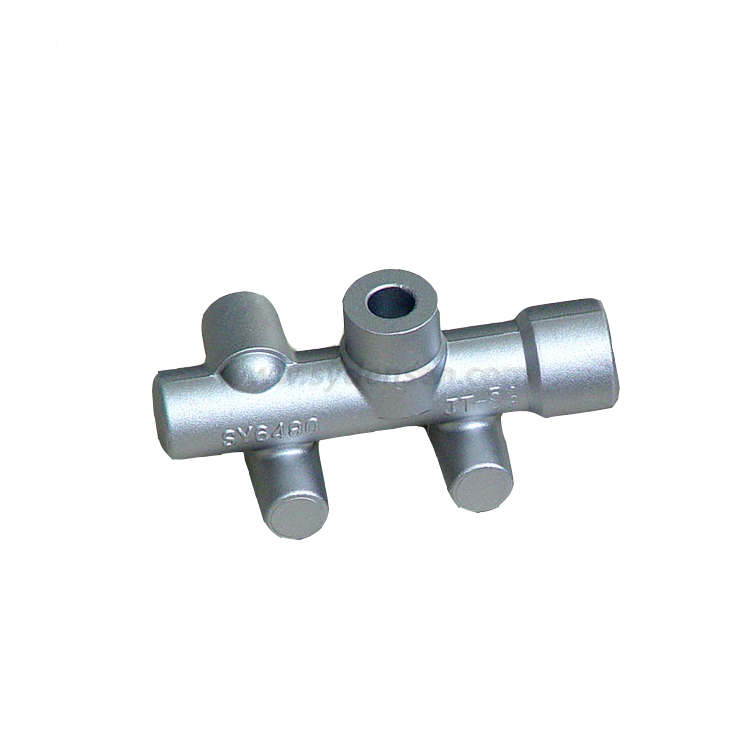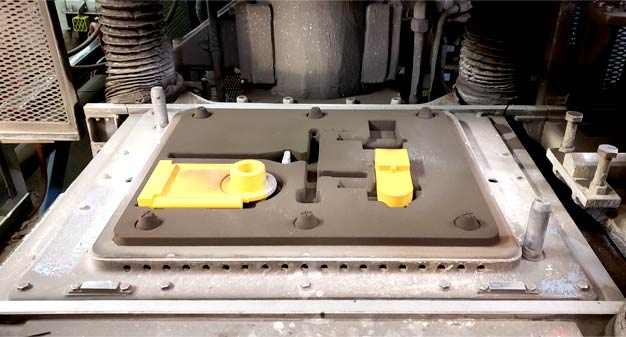Inside Quality Assurance in Aluminum Foundry
Wiki Article
Comprehending Aluminum Casting: A Comprehensive Guide to Its Advantages and Applications
Aluminum casting is a procedure that transforms molten aluminum right into solid kinds through numerous methods. This technique offers remarkable advantages, such as light-weight stamina and corrosion resistance. It finds applications in countless markets, mirroring its flexibility. Comprehending the ins and outs of aluminum casting and its finest techniques can greatly influence the high quality of the last product. Discovering these components reveals the true possibility of aluminum casting in modern-day manufacturing.The Essentials of Aluminum Casting
Aluminum casting is a production procedure that transforms molten aluminum into strong items via various techniques. This process starts with home heating aluminum until it reaches its melting point, enabling it to stream right into molds. There are several methods of aluminum casting, including sand casting, die casting, and financial investment casting, each suitable for various applications based upon layout intricacy and manufacturing quantity.In sand casting, molds are created making use of sand, giving adaptability for intricate shapes. Die casting involves requiring molten aluminum into a steel mold under high pressure, resulting in repeatable and precise parts. Investment casting, on the various other hand, makes use of a wax pattern that is covered with ceramic to develop comprehensive components.
After the aluminum solidifies and cools, the molds are removed, disclosing the completed products. This casting process is essential in various markets, including vehicle, aerospace, and customer products, allowing the development of resilient and light-weight elements.
Benefits of Aluminum Casting
Among the crucial benefits of aluminum casting lies in its ability to generate lightweight yet solid elements. This distinct mix makes aluminum an optimal option for different sectors, including automotive, aerospace, and durable goods. The fundamental corrosion resistance of aluminum likewise enhances the toughness of the cast components, extending their life-span and minimizing the need for upkeep.
Additionally, aluminum casting enables elaborate layouts and complex geometries, which can lead to extra reliable and cosmetically pleasing items. The product's outstanding thermal and electrical conductivity even more expands its applications, especially in electronic devices and warm exchangers.
Moreover, aluminum recycling is very reliable, adding to ecological sustainability and minimizing manufacturing costs. Overall, the benefits of aluminum casting placement it as a functional and functional remedy for makers seeking to maximize efficiency while minimizing weight and source use.
Typical Techniques of Aluminum Casting
While different methods exist for aluminum casting, each approach supplies distinctive benefits customized to specific applications. The most usual approaches consist of sand casting, pass away casting, and financial investment casting.Sand casting, known for its adaptability, utilizes sand molds to produce complicated forms and appropriates for both big and little production runs. Die casting, on the other hand, employs high-pressure injection of molten aluminum into steel molds, resulting in smooth surface areas and specific dimensions, making it optimal for mass manufacturing.
Investment casting, typically referred to as lost-wax casting, involves creating a wax pattern coated with a ceramic covering. aluminum casting. Once the wax is dissolved, liquified aluminum is put into the tooth cavity, producing intricate layouts and superb surface area finishes
Each of these techniques plays an important role in the aluminum casting landscape, offering details benefits that deal with differing production demands and manufacturing scales.
Applications Throughout Industries
The adaptability of aluminum casting approaches permits a large range of applications throughout different sectors. In the automotive industry, lightweight aluminum components improve fuel performance and efficiency, adding to the growing demand for electrical lorries. Aerospace sectors use aluminum spreadings for their strength-to-weight ratio, making sure security and toughness in aircraft production.The construction sector advantages from aluminum casting through architectural aspects and structural elements that withstand rust and need very little upkeep. In addition, customer electronic devices suppliers employ aluminum castings for frameworks and housings, stabilizing aesthetic appeals with capability.
In the marine field, aluminum castings are favored for watercrafts and aquatic equipment as a result of their resistance to saltwater deterioration. The medical field makes use of aluminum castings in medical tools and devices, making sure precision and reliability. On the whole, aluminum casting's adaptability allows it to meet the diverse requirements of multiple sectors, making it a vital production procedure.
Ideal Practices for Effective Aluminum Casting
Successful aluminum casting depends on a combination of mindful preparation, specific implementation, and thorough quality assurance. Choosing top notch aluminum alloys is essential, as they directly affect the casting's properties and performance. Proper mold and mildew layout is vital, guaranteeing that it fits thermal contraction and decreases flaws.Throughout the melting process, preserving the appropriate temperature and staying clear of contamination are essential to accomplishing a consistent alloy. In addition, using reliable pouring strategies can enhance the filling of molds, lowering the possibility of air pockets or inclusions.
Post-casting, carrying out detailed examination methods, such as visual assessments and non-destructive screening, assures that defects are recognized early. Utilizing rigorous high quality control procedures throughout the process assists preserve uniformity and integrity in the last items. By sticking to these ideal practices, producers can significantly improve the success and performance of their aluminum casting procedures.
Frequently Asked Inquiries
What Precaution Should Be Taken Throughout Aluminum Casting?

How Can Flaws in Aluminum Castings Be Reduced?
Defects in aluminum castings can be lessened with careful mold and mildew design, proper temperature level control, guaranteeing clean metal, making use of proper putting techniques, and conducting comprehensive examinations to identify and resolve concerns prior to completing the casting procedure.
What Is the Environmental Influence of Aluminum Casting?
The environmental impact of aluminum casting consists of energy-intensive procedures, greenhouse gas exhausts, and resource extraction problems. However, advancements in reusing and sustainable practices can minimize these results, advertising an extra eco-friendly strategy to aluminum manufacturing.Can Aluminum Casting Be Recycled?
Yes, aluminum casting can be recycled effectively. The recycling procedure calls for significantly much less power compared to primary aluminum production, making it an eco friendly choice that adds to resource conservation and minimized carbon exhausts.What Are the Expenses Linked With Aluminum Casting Processes?
Costs associated with aluminum casting processes consist of material expenses, labor, tools upkeep, energy usage, and mold manufacture. These elements can vary considerably based on manufacturing scale, complexity of designs, and particular manufacturing strategies utilized.Aluminum casting is a procedure that changes liquified aluminum into strong forms with numerous strategies. Aluminum casting is a production process that transforms liquified aluminum right into strong objects via numerous methods. While various methods exist for aluminum casting, each method uses unique advantages customized to specific applications. The ecological influence of aluminum casting consists of energy-intensive procedures, greenhouse gas discharges, and resource extraction worries. Prices associated with aluminum casting procedures consist of material expenditures, labor, devices upkeep, power consumption, and mold and mildew manufacture.
Report this wiki page